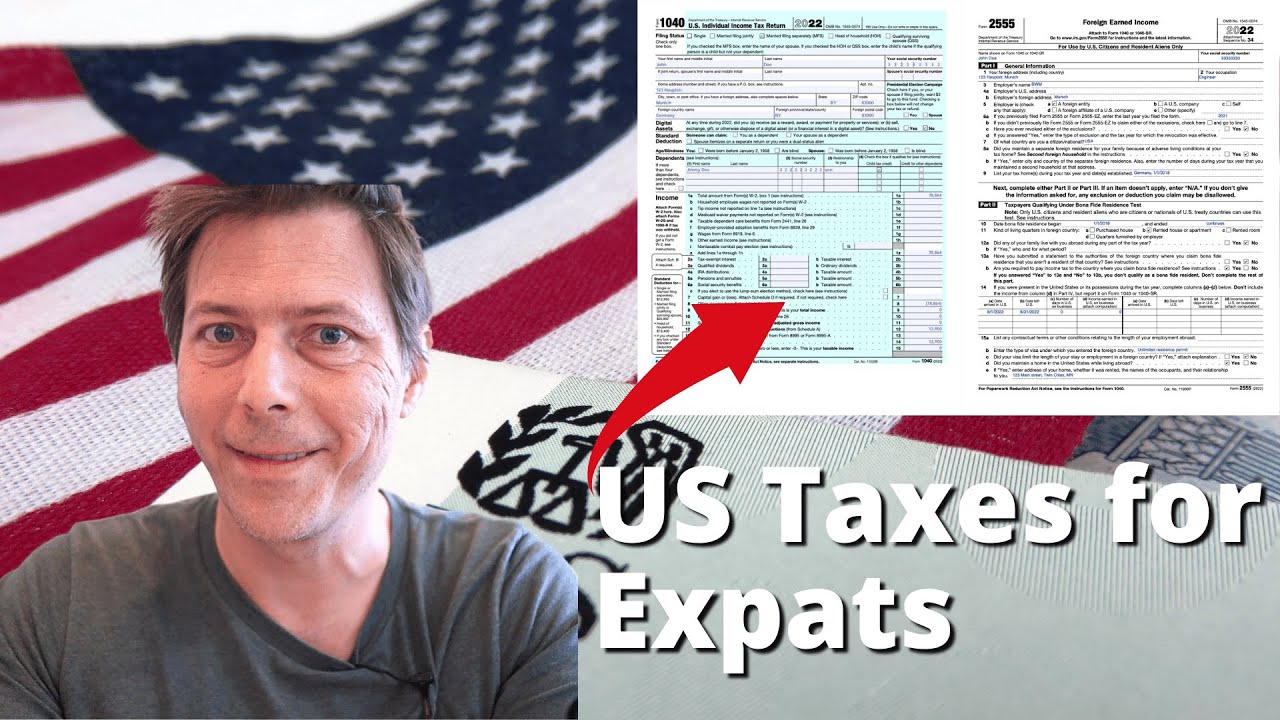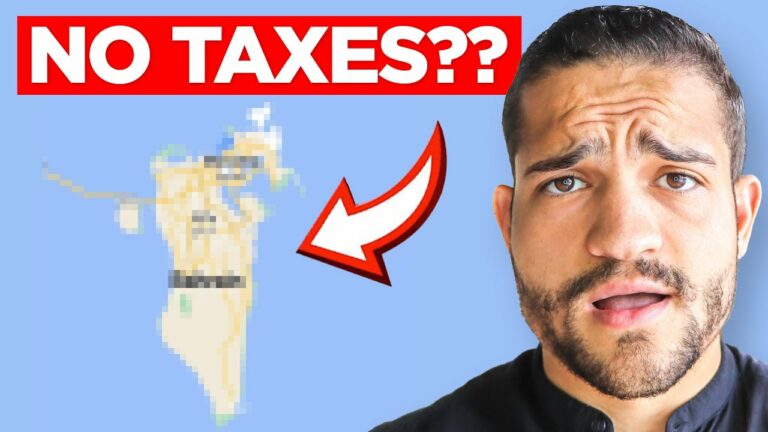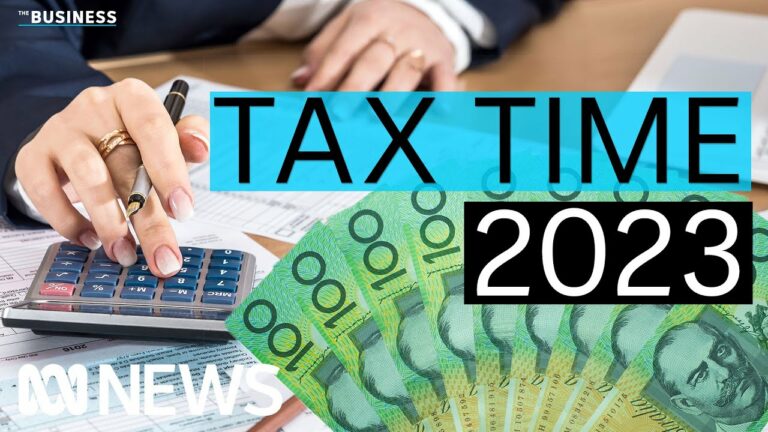Expat Tax Benefits & Golden Visas | Expert Insights at GoldenVisaReviews.com
I have had my fair share of experiences with expat taxes – the bane of every expat’s existence. From navigating the convoluted tax laws of different countries to dealing with the IRS back home, I’ve learned a thing or two about the importance of understanding and managing expat taxes. In this post, I’ll share some of my personal experiences and provide practical tips on how to tackle this complex issue. Whether you’re a seasoned expat or just starting out, this guide will help you navigate the often confusing world of expat taxes and ensure that you’re on the right track.
What taxes do expats pay?
As an expat, understanding your tax obligations can be a daunting task. Taxes can be complex and vary from country to country, making it important to stay informed. Here, we break down the basics of expat taxes, including what taxes you may be required to pay and what you need to know to stay compliant.
What taxes do expats pay?
Expats are required to pay taxes in their country of residence, and in some cases, their home country. The specific taxes that may apply to you as an expat are determined by a variety of factors, such as your income, residency status, and the tax laws of the country in which you reside.
Income tax
The most common tax that expats must pay is income tax. This tax is typically levied on your worldwide income, including wages, self-employment income, and investment income. The tax rate and tax brackets vary depending on the country, but many countries have tax treaties that aim to prevent double taxation.
For example, as a US citizen living abroad, you may still need to file a US tax return and pay US income tax, depending on your income level and the country in which you reside. However, you may be able to claim a foreign tax credit to reduce your US tax liability.
Social security tax
In some countries, expats are required to pay social security tax. This tax is used to fund public programs such as retirement benefits, disability benefits, and healthcare. The amount you pay is typically a percentage of your income, and your employer may also be required to contribute.
Property tax
If you own property in the country in which you reside, you may be required to pay property tax. This tax is typically based on the value of your property and is used to fund public services such as schools, roads, and parks.
Value-added tax (VAT)
Many countries have a value-added tax (VAT), which is a tax on goods and services. The VAT rate varies depending on the country and the type of goods or services being taxed. As an expat, you may be eligible for a refund of VAT paid on goods and services that are exported or used for business purposes.
Staying compliant
Staying compliant with tax laws can be challenging for expats, especially when dealing with multiple tax jurisdictions. Here are some tips to help you stay compliant:
- Research the tax laws of your home country and your country of residence to understand your tax obligations.
- Keep accurate records of your income, expenses, and taxes paid.
- Consult with a tax professional who specializes in expat taxes.
- File your tax returns on time to avoid penalties and interest.
By staying informed and taking the necessary steps to stay compliant, you can avoid costly mistakes and enjoy the benefits of expat life.
Do expats pay more taxes?
One of the most common questions that expats have is whether they will pay more taxes when living abroad. The answer, as it often is with taxes, is: it depends. Every country has its own tax laws and regulations, and the amount of taxes you pay as an expat will depend on a number of factors.
Tax treaties
Many countries have tax treaties with each other, which aim to prevent double taxation of individuals or businesses that operate in both countries. These treaties typically specify which country has the right to tax different types of income (such as salaries, dividends, and capital gains) and provide mechanisms for resolving disputes and exchanging information between tax authorities.
For example, if you are a US citizen living in Spain and earning income from both countries, you may be subject to both US and Spanish taxes on that income. However, the US-Spain tax treaty includes provisions that allow you to claim a foreign tax credit on your US tax return for any taxes you pay to Spain on that income, effectively reducing your US tax liability.
Residency and citizenship
Your tax liability as an expat will also depend on your residency status in both your home country and your host country. In general, if you are a resident of a country, you will be subject to that country’s tax laws on your worldwide income. Non-residents, on the other hand, may only be subject to taxes on income earned within that country.
Many countries also offer special tax incentives or breaks for expats who meet certain residency or citizenship requirements. For example, some countries have “territorial” tax systems that only tax income earned within their borders, while others have “worldwide” tax systems that tax all income earned by residents regardless of its source. Some countries also offer tax breaks for expats who invest in local businesses, real estate, or other assets.
Practical examples
Let’s look at a few practical examples of how expat taxes can work in practice:
- Example 1: John is a US citizen who has been living and working in the UK for the past year. He earns £50,000 per year from his job in the UK. Under UK tax law, he is considered a resident and is therefore subject to UK taxes on his worldwide income. However, under the US-UK tax treaty, he can claim a foreign tax credit on his US tax return for any taxes he pays to the UK on that income. Assuming he pays £10,000 in UK taxes, he can claim that amount as a credit against his US tax liability.
- Example 2: Sarah is a Canadian citizen who has been living in Dubai for the past two years. She earns AED 250,000 per year from her job in Dubai. Under UAE tax law, she is considered a resident and is therefore subject to UAE taxes on her worldwide income. However, Canada and UAE do not have a tax treaty, so Sarah may be subject to double taxation on her income. She should consult with a tax professional to determine her tax liability in both countries.
- Example 3: Tom is a German citizen who has been living in Thailand for the past five years. He owns a small business in Thailand that generates income of THB 1 million per year. Under Thai tax law, he is subject to taxes on his worldwide income as a resident. However, Thailand offers a tax break for foreigners who invest in Thai businesses, so Tom may be eligible for a reduced tax rate on his business income.
Do expats need to pay U.S. taxes?
Moving abroad can be an exciting adventure, but it also comes with its fair share of challenges, one of which is navigating the complicated world of expat taxes. As a seasoned expat myself, I know firsthand the confusion and stress that can come with understanding your tax obligations as a U.S. citizen living abroad. In this article, we’ll explore the question of whether expats need to pay U.S. taxes and provide practical advice to help you navigate this complex topic.
Understanding Your Tax Obligations as an Expat
The short answer to the question of whether expats need to pay U.S. taxes is yes, in most cases. The U.S. government taxes its citizens on their worldwide income, regardless of where they live. This means that even if you move abroad and earn all of your income outside of the U.S., you may still be required to file a U.S. tax return.
However, there are some exceptions and special provisions that can help reduce your tax burden as an expat. For example, the Foreign Earned Income Exclusion (FEIE) allows you to exclude up to $107,600 (as of 2020) of your foreign earned income from U.S. taxes. There are also provisions for foreign tax credits, which can reduce your U.S. tax liability if you’ve paid taxes on your income in your country of residence.
The Importance of Filing a U.S. Tax Return
Even if you don’t owe any U.S. taxes due to the FEIE or foreign tax credits, it’s still important to file a U.S. tax return every year. Failure to do so can result in penalties and interest charges, and can even lead to legal trouble down the line. Additionally, filing a tax return can help establish your residency or citizenship status, which can be important if you plan to return to the U.S. in the future or apply for certain benefits.
Practical Tips for Navigating Expat Taxes
While navigating the world of expat taxes can be overwhelming, there are some practical tips that can make the process a little easier:
- Keep detailed records of your income, expenses, and any taxes paid in your country of residence.
- Consult with a tax professional who has experience working with expats. They can help ensure that you’re taking advantage of all available deductions and credits, while also ensuring that you’re in compliance with U.S. tax laws.
- File your tax return on time every year, even if you don’t owe any U.S. taxes. This will help you stay in good standing with the IRS and avoid any penalties or interest charges.
What countries make expats pay taxes?
Living as an expat can be an exciting and eye-opening experience. You get to immerse yourself in new cultures, learn new languages, taste new foods, and meet new people. However, there are also some challenges that come with living abroad, and one of the most significant ones is taxes. As an expat, you may be required to pay taxes both in your home country and the country you are residing in. In this article, we will discuss which countries make expats pay taxes and provide practical tips to help you navigate this complex issue.
Which countries make expats pay taxes?
The answer to this question is not straightforward, as it depends on a variety of factors. For example, your tax obligations may depend on your residency status, the type of income you receive, and the tax laws of both your home country and the country you are living in. However, here are some countries that generally require expats to pay taxes:
The United States
If you are a US citizen or resident alien, you are required to pay taxes on your worldwide income, regardless of where you live. This means that even if you move to another country and earn income there, you are still required to file a US tax return and pay any applicable taxes. However, there are some exemptions and deductions available to reduce your tax liability, such as the foreign earned income exclusion and foreign tax credit.
The United Kingdom
If you are a UK resident, you are required to pay taxes on your worldwide income. However, if you are a non-resident, you may only be required to pay taxes on income earned in the UK. It is essential to understand the UK’s residency rules, as they can be complex and vary depending on your circumstances.
Australia
If you are an Australian resident, you are required to pay taxes on your worldwide income. If you are a non-resident, you may only be required to pay taxes on income earned in Australia. However, if you are a temporary resident, you may be eligible for certain tax exemptions and concessions.
Practical tips for navigating expat taxes
Navigating expat taxes can be challenging, but here are some practical tips to help you:
Understand your residency status
Your residency status can significantly impact your tax obligations. It is essential to understand the residency rules of both your home country and the country you are residing in. If you are unsure, seek advice from a tax professional.
Keep accurate records
Keeping accurate records of your income, expenses, and taxes paid is crucial. This will help you file your tax returns accurately and claim any applicable deductions or credits.
Seek professional advice
Navigating expat taxes can be complex, and it is crucial to seek professional advice. A tax professional with experience in expat taxes can help you understand your tax obligations and identify any tax planning opportunities.
expat taxes can be a complicated and nuanced topic, but with the right resources and guidance, navigating the process can be a smooth and stress-free experience. As an expat who has lived and worked in multiple countries, I understand the importance of staying compliant with local tax laws while also maximizing your financial opportunities. From understanding the intricacies of foreign tax credits to leveraging investment opportunities in your host country, there are numerous ways to make the most of your expat experience. I encourage all expats to seek out reliable resources and professional guidance to ensure they are on the right track when it comes to their taxes.
Ultimately, living abroad can be a fulfilling and rewarding experience, but it does require a certain degree of planning and preparation. As an expat, it is important to stay informed about local customs, legal requirements, and investment opportunities in order to make the most of your time abroad. Whether you are considering a move, or have already made the leap, I hope this article has provided you with a valuable perspective on expat taxes and the various factors to consider when navigating the financial landscape of a foreign country. By staying informed and proactive, expats can enjoy a fulfilling and prosperous life abroad.


